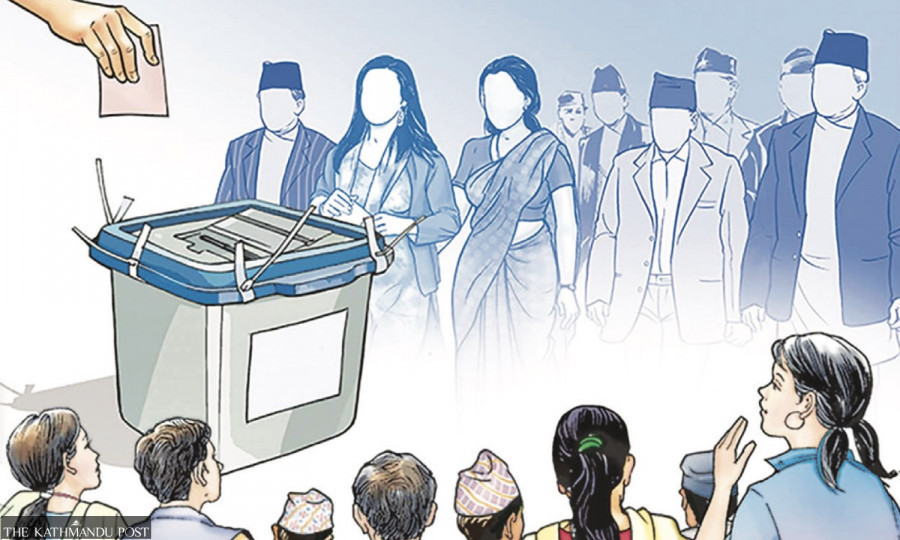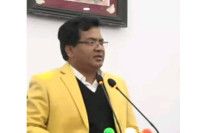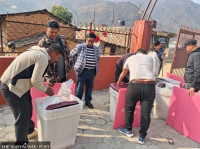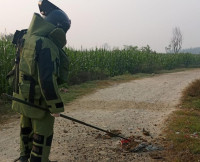National
Is the new initiative for diaspora voting too little, too late?
Election officials cite political conditions in host countries, time constraints as barriers to honouring franchise right.
Binod Ghimire
With hardly four months for the mid-term elections, the government has shown some “urgency” in exploring ways to provide voting rights to the Nepali diaspora.
A month and a half into its formation, the Sushila Karki government has started consultations on an ordinance to amend existing election laws to pave the way for Nepalis living abroad to exercise their franchise.
It has also asked the Policy Research Institute, a specialised think tank of Nepal government, to study and suggest how that right can be guaranteed. The interim government, which replaced the erstwhile KP Sharma Oli government, dissolved the House of Representatives and announced snap polls for March 5.
Laxman Prasad Bhattarai, board secretary at the institute, said they will take around three weeks to study and submit the report.
“We need to consult the Election Commission, different stakeholders and experts,” he said. “We will also study the practice in other countries.” There will be nearly three months at hand for the commission to make necessary arrangements by the time the institute submits its report.
An official at the commission said the government has forwarded a draft ordinance in order to remove the legal barriers and allow Nepalis abroad to vote from their place of residence.
“We have been asked to suggest changes in existing laws to ensure the rights,” said Narayan Prasad Bhattarai, spokesperson for the commission.
The government has cited the Supreme Court’s rulings to ensure diaspora voting under the proportional representation system. A division bench of justices Sapana Pradhan Malla and Purushottam Bhandari, on April 27, 2017, had directed the government to allow Nepali citizens living abroad to vote.
“Make all necessary arrangements for ensuring the voting rights of all Nepalis living abroad,” the verdict said. It said Nepalis who have not renounced their citizenship, not acquired citizenship of another country, hold the voter identity card issued by the Election Commission, and have their names on the lists updated by a diplomatic mission should be allowed overseas voting.
With no progress in implementation, the court’s Judgement Enforcement Directorate, in July, reminded the commission to implement the order. Speaking to the Post, acting Election Commissioner Ram Prasad Bhandari said respecting the court order, the commission had three years back incorporated a provision to give voting rights to Nepali citizens abroad in the draft bill to amend and consolidate the elections laws.
The bill envisions allowing them to vote under the proportional representation category via Nepal’s diplomatic missions in the respective countries. However, successive governments chose to ignore the bill.
“The commission has always said it is in favour of allowing the Nepali diaspora to vote if the government can make it possible,” Bhandari said. “There has to be a law to start with. The government should provide logistics while the host countries also need to allow our people to vote from there.”
Senior officials at the commission, however, say allowing Nepalis living abroad to vote will entail rigorous homework and a lot of diplomatic maneuvering to convince the host countries. The majority of Nepali migrants live in Gulf countries which do not hold elections. And in countries like Qatar, Nepalis outnumber the Qataris themselves.
“We need at least two years of preparations to ensure voting rights for the diaspora,” said one of the officials at the commission, asking not to be named for fear of reprisal. “Such decisions cannot be taken in haste.”
He said the Election Commission had drafted the bill envisioning that the voting could begin from some country as a trial from the 2084 (2027) general elections. As in Nepal, the diasporic population needs to be enrolled in the voter list first. Amending the existing law through an ordinance, the commission has allowed new voters to register by November 16. Enrolling the diaspora in the list will take at least a month.
The official ruled out the possibility of diaspora voting this time. “But the government is under intense pressure to provide such rights,” he said. “By asking the PRI to conduct a study and seeking suggestions from the commission on the ordinance, it might be trying to show it is doing something about it.”




 22.6°C Kathmandu
22.6°C Kathmandu















